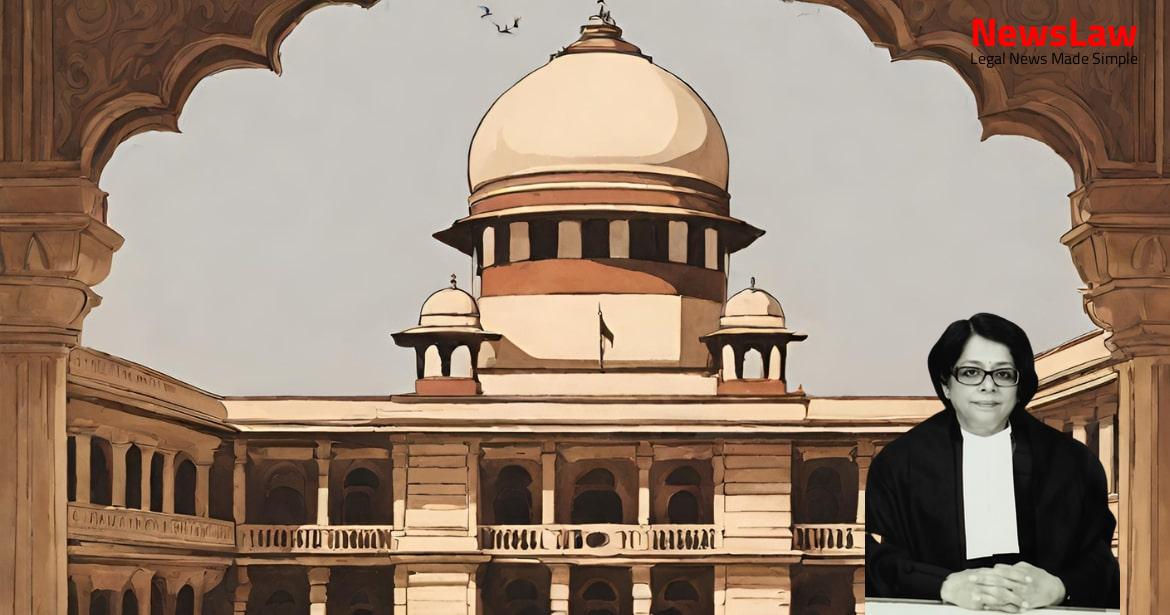In a landmark judgment by the Supreme Court of India, guidelines on insurance claim settlement were discussed, impacting the case involving the insurance company and the claimant. The Court emphasized the adherence to policy conditions and the necessity of immediate notice in case of loss or damage. Stay informed about the crucial details of the case and its implications on insurance claim processes.
Facts
- The spot surveyor submitted a zerox copy of a newspaper dated 3.6.2009 along with the spot survey report.
- The insurance company was found deficient in services for repudiating the insurance claim of the complainant.
- The State Commission ordered the opponent insurance company to pay Rs. 13,50,000 with 9% interest within a month.
- The respondent appointed an independent surveyor for spot survey after the alleged fire loss of the insured truck.
- The National Commission quantified the claim at 60% of the Insured Declared Value (IDV) based on a previous court decision.
- The spot surveyor’s observation of green grass and leaves surrounding the burnt parts was considered significant.
- The spot surveyor’s report raised doubts about the incident being a case of manipulation and fabrication.
- The National Commission directed both parties to bear their own litigation expenses.
Arguments
- Ms. Meenakshi Midha, learned advocate for the respondent supported the decision of the National Commission.
- She submitted that there was a delay in intimating the Insurance Company, leading to a breach of warranty/condition of the Policy.
Also Read: CRPF Act: Validity of Rule 27 for Compulsory Retirement – Case of Head Constable vs. CRPF
Analysis
- The judgment analyzed the guidelines issued by the Hon’ble Supreme Court regarding settlement percentages for different violations of policy conditions.
- The violation of an important condition in the policy led to the decision to allow the insurance claim at 60% of the Insured Declared Value (IDV) of the vehicle.
- The case discussed the necessity of immediate notice to the police in cases of theft or criminal acts, which was not required in the present matter.
- The insurance claim was reduced to 60% of the IDV due to the violation of the policy condition, despite the absence of immediate notice to the police.
- The role of a First Information Report (FIR) in cases of vehicle loss or damage was emphasized, even in situations other than theft.
- The delay in giving notice to the police and the insurance company was considered a crucial factor in determining the claim amount.
- The violation of policy conditions by not giving immediate information to the insurance company was highlighted as a significant factor affecting the claim settlement process.
- The judgment referenced a previous case to support the importance of adhering to policy conditions and providing timely information in case of an accident or loss.
- The deliberate action of setting the vehicle on fire was questioned in the absence of a clear motive, especially when valid insurance claims could be made.
- The delay in appointing a surveyor due to delayed notice to the insurance company was noted as a key factor impacting the investigation and claim process.
- The insured must immediately inform the Company in writing upon the occurrence of any accidental loss or damage.
- In the event of theft or a criminal act that could lead to a claim, the insured must promptly notify the police.
- The insured is required to cooperate with the Company and authorities to secure the conviction of the offender in case of theft or criminal activity.
- If the insured has knowledge of any impending prosecution, inquest, or fatal inquiry related to a potential claim, they must inform the Company immediately.
- All correspondence, including letters, claims, writs, summons, or processes, must be forwarded to the Company without delay upon reception by the insured.
- The National Commission found no violation of requisite conditions by the appellant.
- The decision to reduce the claim to 60% of the IDV of the vehicle was unjustified.
- The State Commission’s conclusions and directions were deemed correct and did not require intervention.
Also Read: DAMEPL vs. DMRC: Curative Petition and Arbitral Award Restoration
Decision
- State Commission’s order dated 11.08.2015 restored
- National Commission’s view set aside
- Litigation expenses of Rs.10,000/- awarded
Case Title: KAMLESH Vs. SHRIRAM GENERAL INSURANCE COMPANY LTD
Case Number: C.A. No.-008796-008796 / 2019



